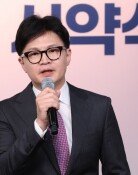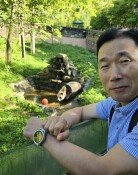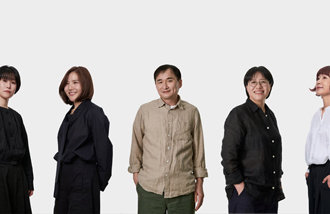Low Birth Rates and Aging of Koreas Industry
Low Birth Rates and Aging of Koreas Industry
Posted September. 05, 2007 03:03,
A study has found that Koreas industrial structure is losing its steam because of low birth rates and aging companies, which mirrors the demographic challenge that the country is facing.
The Dong-A Ilbo and the Federation of Korean Industries jointly conducted a comparative analysis of the countrys top 30 corporations in 1997 and this year to find that only two corporations, STX and Eland, have joined the top 30 over the last 10 years.
Moreover, there has been little change in the main export products of conglomerates, raising serious concerns over the countrys future growth engine.
Spin-off Firms and Privatized Public Corporations-
According to the analysis, 14 out of the top 30 corporations (excluding public corporations) that the Fair Trade Commission announced in 1997 have been sold to companies home and abroad or gone bankrupt, dropping from the new list of the top 30 announced this year.
However, they have been mostly replaced by spin-off firms from conglomerates or privatized public corporations, rather than by new players.
For instance, Hyundai Motor Company, which was spun off from the former Hyundai Group, took second place, followed by Hyundai Heavy Industries (11th), Hynix Semiconductor (14th), Hyundai (17th), Hyundai Engineering and Construction (23rd), Hyundai Department Store (27th) and KCC (30th).
Shinsegae (15th) and CJ (19th) separated from the Samsung Group in 1997, while GS (8th) and LS (16th) are from the LG Group. GM Daewoo (21st) and Daewoo Shipbuilding and Marine Engineering (22nd)are spin-off firms from the Daewoo Group, which was dissolved in 1999.
Other than the privatized POSCO (6th) and KT (7th), there are only two corporations that have made it to the top 30: STX (24th) and Eland (26th). It is also worrying that the main export products of the existing conglomerates are aging amid the lack of emergence of new big players.
Among top five export products last year, semiconductors and ships have been on the list of the top 10 export products for 29 and 30 years, respectively. Furthermore, automobiles have been on the list for 19 years and petroleum products for 20 years, while wireless communications devices have been on the list for just 8 years.
Excessive Regulations Dry Up Entrepreneurship-
A large part of the current low fertility and aging of the Korean industry is attributable to corporations themselves, which focused on stable management after the financial crisis. But institutions did their part as well.
Lim Sang-hyeok, a researcher at the FKI, said, Excessive government regulations have played a big role in drying up the entrepreneurship needed to break into a new market, and to take risks.
Indeed, regulations on conglomerates, which had been largely equated with credit management in the 1970s, have increased significantly since 1987 when the Fair Trade Act introduced prevention of concentration of economic power measures. A series of new regulations on the top 30 corporations emerged, including a cap on corporate investment in subsidiaries, ban on mutual investment, and regulations on the establishment and expansion of plants in the Seoul and metropolitan area.
Later, the investment cap on subsidiaries, which was scrapped in 1997, was reinstated after the financial crisis on individual firms with more than two trillion won in assets. The mutual investment ban among subsidiaries, which used to be imposed on the top 30 corporations, has been expanded to cover companies with more than two trillion won in assets.
Experts say that the strengthening regulations have encouraged corporations to adopt a strategy of using their surplus capital for repayment of debts, rather than investment, and not to cross the asset criteria for such regulations.
Yoo Byeong-gyu, managing director at Hyundai Economic Research Institute, said, A continued low birth rate and aging of industry will make sustained economic growth impossible, adding, To tackle this situation, we need to review the logic for regulations in the past from scratch.
woogija@donga.com bae2150@donga.com
Headline News
- Top four S. Korean companies have fewer young workers
- Transcripts of Seoul City Hall reversing vehicle incident revealed
- Kamara Harris emerges as potential successor if Biden steps down
- Brazil, Uruguay to clash in 2024 Copa America quarterfinals
- Opposition parties table a special probe bill on Cpl. Chae’s death







